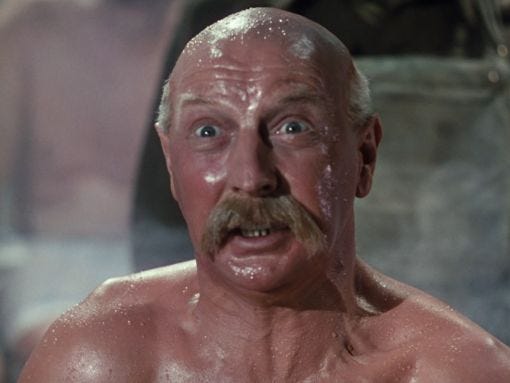The case for Colonel Blimp
Why Keir
We are a balanced magazine of the moderate centre, as such, it seems imperative to offer advice to and advocacy for both contenders in this election. What, then, is the case for Sir Keir ‘Hamshank’ Starmer, the Colonel Blimp of the 21st century? With his hammy face, his borderline obesity, his paranoid incomprehension of anything that has happened in his own century, his advanced age, his hatred for ‘cranks’ (‘extremists’) and ‘highbrows’ (‘divisiveness’) Starmer is a lot like Colonel Blimp. He certainly looks like him. His only interests in life, like Blimp’s, appear to be derivatives of eating or sports. He has risen to great prominence in a career (cavalry officer/solicitor) which shall soon be made redundant by technological progress.
“Gad Sir! Bowers is right! The Nolan Principles are Right because Rightness is a Principle, and I’ll damn well box the ears of any high-brow feller who rubbishes an Ethical Workshop. Damnit.”
So, how to make the case for Starmer? Last night, I watched the Powell and Pressburger film The Life and Death of Colonel Blimp (SPOILERS: he doesn’t die). Colonel Blimp was a right-wing character created by the left-wing, kiwi cartoonist David Low in the 1930s to mock the sort of Victorian people who still, disastrously held the reins of power in interwar Britain. Colonel Blimp was a man with long but leisurely service East of Suez who inhabited his club like a hermit crab its shell, the days of whom were totally preoccupied by representing the regiment at county hunts and race meetings. Powell and Pressburger differed from Low in their film, they pointed out that, for all his faults, there was a lot to like about Colonel Blimp. The screen-adaptation Blimp is not a ‘Hang the Hun’ jingoist, he has an aristocratic respect for his anti-Nazi German counterpart; yes, he is stupid but he’s therefore uninfected by the nihilism of the interwar world, Blimp believes in ‘honest soldiering’ and ‘Right makes Might’: he is one of the few people who can say things like this without seeming naive or pretentious for it is how he honestly thinks the world works. It is a sign of how much more progressive the postwar world is to our own that, despite this even-handed treatment, there is no attempt to soften the message that Colonel Blimp is outdated; Britain ought to be more like the Nazis, or the Soviet Union, and Colonel Blimp will, eventually, have to go.



